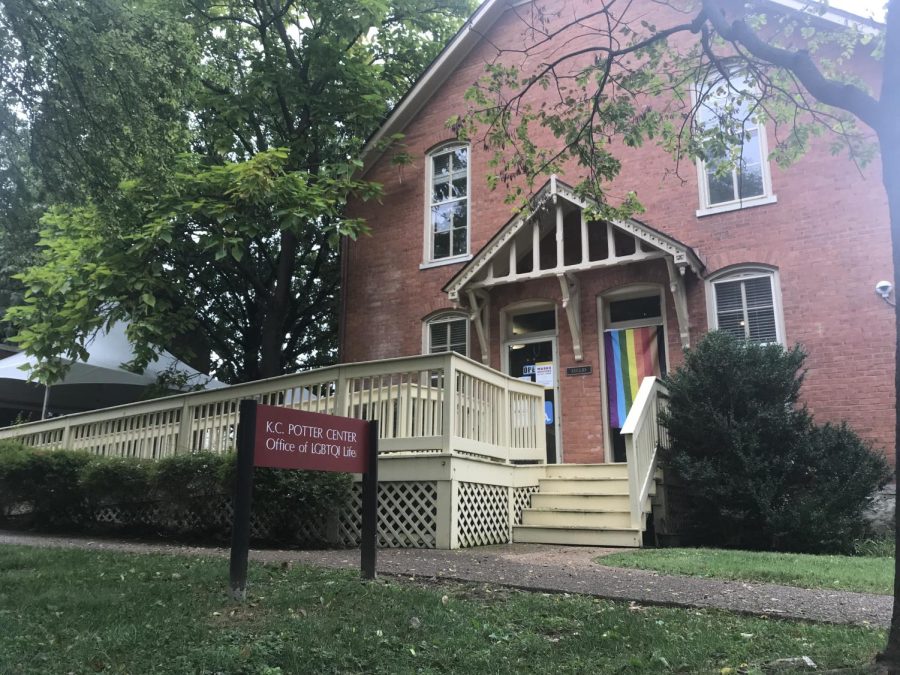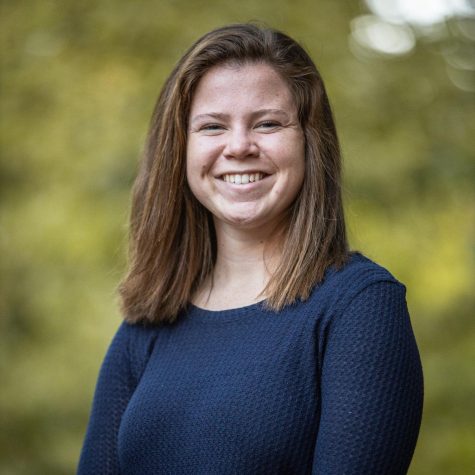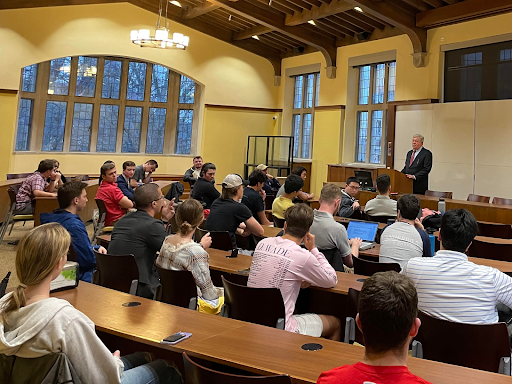Editor’s note: This piece contains mentions of suicide.
In partnership with Inclusion Tennessee and the Human Rights Campaign, Vanderbilt’s Office of LGBTQI Life organized this year’s Nashville Transgender Day of Remembrance and Resilience on Nov. 16. Hosted at The Cordelle, the event was held to recognize lives lost to anti-trans violence and celebrate the “resiliency and beauty” of the trans community. The location was selected by Vanderbilt as a “safe, neutral” space.
The event featured a candlelight vigil, a reading of the names of individuals who lost their lives to anti-trans violence in the past year and speeches from members of Nashville’s LGBTQ+ and activist communities. This year’s celebration comes amid attacks on VUMC’s transgender healthcare clinic and anti-trans rallies.
The event opened with remarks from Dr. Stephanie Mahnke, director of the Office of LGBTQI Life, who informed the audience about available mental health resources. She then introduced the first speaker of the night, Olivia Hill, a retired transgender Vanderbilt employee who sued the university in 2021 on the basis of sex, gender identity and disability discrimination in the workplace. Hill began her address by thanking the university for listening to the concerns of the trans community and providing a safe, neutral space for the vigil. She reflected on the significance of Transgender Day of Remembrance.
“Think in your mind of what your greatest wish is. And think for a second, how you might feel if you woke up tomorrow morning and that wish came true. That’s what it’s like for me every morning as I wake up as my authentic self,” Hill said. “But imagine if someone stepped in and took your dream away. That’s why we’re here tonight—to celebrate the people that just stood up to be their authentic selves.”
Following Hill’s remarks, adjunct professor of history and women and gender studies at Middle Tennessee State University Marisa Richmond addressed the crowd. Richmond said Transgender Day of Remembrance was first held on Nov. 28, 1999, in honor of Rita Hester, a Black transgender woman who was murdered in Boston in 1998 due to her identity. The day has been celebrated in more than 185 cities across over 20 nations, typically on Nov. 20. Richmond said that Nashville began celebrating Transgender Day of Remembrance in November 2002 and has held a vigil every year since.
“Each year, we recognize hundreds of documented murders of transgender and gender non-conforming people around the world. The stories come from all categories of race and age. Unfortunately, the tragedies can sometimes be self-inflicted because of the bullying and harassment the transgender and gender non-conforming youth encounter, leading to suicides that are often overlooked by the media,” Richmond said.
According to the 2015 U.S. Transgender Survey, 46% of transgender respondents reported encountering verbal attacks, and one in 10 reported being the victim of physical harassment. Per the 2017-18 National Crime Victimization Survey, transgender people over age 16 are victimized four times more often than cisgender people, with 86.2 victimizations per 1,000 transgender people compared to 21.7 victimizations per 1,000 cisgender people. The Human Rights Campaign announced on Nov. 16 that at least 32 transgender and gender non-conforming people were killed due to their identity in the U.S. in 2022.
Richmond applauded the efforts of the Tennessee Attorney General’s office in including transgender individuals within the state’s hate crime law. She also commended the Metro Nashville Police Department for having an LGBTQ+ liaison and requiring its officers to complete training on transgender issues. At the same time, Richmond said former AG Herbert H. Slatery III and current AG Jonathan Skrmetti have filed briefs in Tennessee federal court calling for employers to be allowed to fire their employees on the basis of LGBTQ+ identity.
“In just the past two years, they [the TN General Assembly] have criminalized transgender students’ use of public facilities, which will lead to more harassment of transgender and gender non-conforming students, and denied trans students of all levels from participating in sports,” Richmond said. “They have denied trans youth the right to access hormones and sought to criminalize librarians and educators at all levels, including those like myself who are simply teaching facts about life in this country for marginalized and oppressed people.”
Even with an Obama administration executive order that protects federal employees from gender identity discrimination, Hill said transgender and gender non-conforming communities need more protection. The Equality Act, which prohibits discrimination based on sex, sexual orientation and gender identity, is posed to provide this protection, per Richmond. Though it passed in the U.S. House of Representatives, it is currently behind a filibuster in the Senate.
“The issue of anti-transgender violence is getting increasing prominence in the last several years and yet, the violence continues. That is why we are here tonight and in similar locations all around the world this week,” Richmond said. “To remember those who were taken from us far too early because they were different, and to commit ourselves to the fight for equal rights and justice for all.”
Following Richmond’s comments, the vigil began, during which individuals read the names of transgender lives lost last year while candles were lit in remembrance. Senior and Vanderbilt Lambda Association President Lauren Mitchum and junior and Lambda Community Relations Director Chandler Quaile were among those who read the names. Quaile said Lambda is “extremely proud” of its progress at Vanderbilt and in Nashville and looks forward to the work to be done.
“It meant the world to see the community come together to honor the lives of those who have been victims of senseless anti-trans violence and reaffirm our commitment to giving trans people their ‘roses now,’” Quaile said. “Tonight we lit the candle, taking on the torch of our queer ancestors, illuminating their memory for the next generation of queer people. We made a pledge to not let our trans kin die twice and to fight for a more just world where our trans family do not die at all.”
Other speakers after the candlelight vigil included Reverend Meredith Cox, a spiritual care provider for VUMC’s Program in LGBTQI Health; Simba Woodard, a community advocate; and CJ Desai, a doctoral student at the Vanderbilt Divinity School.
“Maybe you’re feeling that fear and hate that has been cast on our community in Middle Tennessee. And maybe you’re feeling a little overwhelmed. But whatever emotion is meeting you this evening, know that you are not alone,” Cox said. “Each of us showing up here tonight plants those seeds of hope and resistance and resilience. Because when we gather, when we say their names, when we light these candles, we recommit to ending violence against our community. We recommit to hope.”





